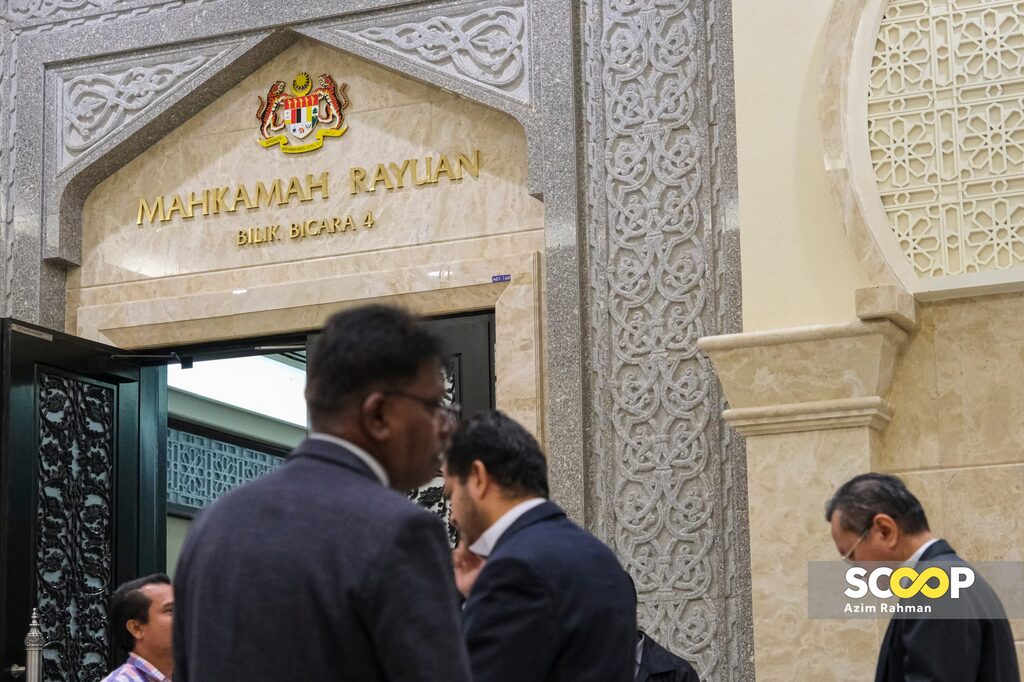PUTRAJAYA – The Court of Appeal has fixed November 23 to decide whether the use of other languages as the medium of instruction in vernacular primary schools violates the federal constitution.
Today, the three-person bench – Datuk Supang Lian, Datuk Gunalan Muniandy, and Datuk Azizul Azmi Adnan – reserved its judgement as they needed to consider submissions from all parties in the appeal, seeing that the matter is of public interest.
Earlier, the bench heard lengthy submissions from both parties, including Mohamed Haniff Khatri Abdullah, who appeared for the Islamic Education Development Council (Mappim) and the Confederation of Malaysian Writers Association (Gapena). Also appearing for the groups was Aidil Khalid.
Haniff submitted a rebuttal against the defendant’s submission, asserting that individual rights to education, regardless of race and religion, are enshrined in Article 12 of the federal constitution.
“The issue of medium of communication in schools does not fall under Article 12 but under Article 152 of the federal constitution, as schools are considered public authorities under the constitution. This means that they are legally required to use Bahasa Malaysia as its medium of communication.”
He added that there are no clauses protecting the use of other languages other than Bahasa Malaysia in the federal constitution.
“If Article 152 really intends to constitutionally preserve the existence of vernacular schools that use Mandarin and Tamil (as mediums of communication), why is there no such clause under the article? For example, Article 152 (2) preserves the use of English in Parliament and state legislative assemblies for 10 years.
“In fact, the alliance government’s suggestion for the use of more than one language as a medium of communication was rejected by the Reid Commission during the final draft of the federal constitution.
“Without any clause preserving the use of Mandarin and Tamil as mediums of instruction in vernacular schools, it confirmed that the constitution, as originally drafted, did not directly intend to preserve such use.”
He reiterated that the appellants are not seeking to abolish vernacular schools but for Bahasa Malaysia to be the medium of communication to unify vernacular and national schools.
The appellants filed an appeal against then Kuala Lumpur High Court judge Datuk Mohd Nazlan Mohd Ghazali’s (who has been elevated to the appellate court) verdict dismissing the suit on December 29, 2021, brought by the Federation of Peninsular Malay Students (GPMS), Mappim, Gapena, and Ikatan Muslim Malaysia (Isma).
However, GPMS did not file an appeal against the dismissal at the Court of Appeal.
Meanwhile, the Kota Bharu High Court, on May 29 last year, dismissed the suit filed by Ikatan Guru-Guru Muslim Malaysia (i-Guru), when judicial commissioner (now high court judge) Abazafree Abbas ruled that vernacular schools are constitutional.
GPMS, Mappim, Gapena, and Isma have filed a suit seeking a declaration that vernacular schools are unconstitutional.
The suit was filed in December 2019, where i-Guru named the education minister and the government, as well as Dong Zong and Jiao Zong, Persatuan Thamizhar Malaysia, and Persatuan Tamilar Thurunal (Perak), as defendants.
Lawyers Datuk Shaharuddin Ali represented i-Guru in the appeal, while Khairul Azam Abdul Aziz appeared for Isma and Bastian Verdargon appeared for the Malaysian Chinese Language Council, the Tamil Neri Kalagam Association, and the Confederation of Former Tamil School Pupils.
Lawyer Liew Horng Bin represented the education minister and government in the appeal. – October 10, 2023


